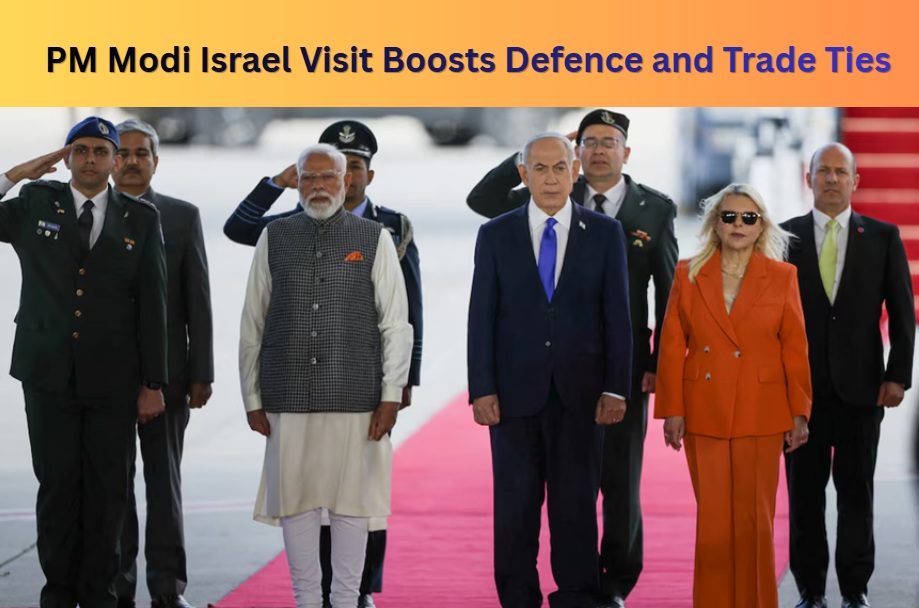Tensions between Israel and Iran have reached a critical point. After a missile attack on Israeli territory, Prime Minister Benjamin Netanyahu vowed that Iran would pay a heavy price. Israel is reportedly considering a range of military responses, from airstrikes on Iran’s nuclear facilities to attacks on its vital oil infrastructure. As the region teeters on the edge of war, a pressing question emerges: will the United States back Israel in what could become a large-scale, high-risk conflict?
Netanyahu’s Strategy: The Path to Confrontation
At first glance, it might seem strange for a leader to want a barrage of missiles—180 in total—fired at their country. But for Netanyahu, the escalating tensions with Iran fit into a larger strategy. Over the past year, he has been pursuing policies that provoke Iran, perhaps deliberately. His administration’s actions—such as excessive force in Gaza, assassinations of Hezbollah leaders, and covert operations against Iranian interests—suggest that Netanyahu has been pushing for this confrontation.
Why? For Netanyahu, Iran represents not just a regional adversary, but a long-term existential threat to Israel. By framing the conflict as a battle for survival, Netanyahu has been able to unify much of his political base and rally public support. The latest missile attacks, while dangerous, give him the opportunity to engage Iran directly, something he has been preparing for. This is not just about retaliation; it’s about reshaping the balance of power in the Middle East.
In a recent security meeting, Netanyahu declared, “Iran made a big mistake tonight, and it will pay for it. The regime in Iran does not understand our determination to defend ourselves and retaliate against our enemies. They will understand soon.”
A Stronger Netanyahu: Domestic and Battlefield Gains
Netanyahu’s current political standing is stronger than it has been in recent years. His firm stance against Iran, combined with his handling of security issues, has bolstered his popularity. Domestically, his allies have closed ranks around him, making it easier for him to pursue aggressive policies. On the battlefield, Israel has made significant gains in terms of military readiness and technology, giving Netanyahu an edge he did not have in previous confrontations.
The timing is also favorable. With regional dynamics shifting—particularly with the normalization of relations between Israel and several Arab states—Netanyahu is in a better position than ever to challenge Iran directly. He has even taken the unusual step of addressing the Iranian people, hinting at a future where the regime in Tehran is replaced, stating that when Iran is free, peace between their two ancient peoples will follow.
But Netanyahu’s message to the Iranian people was not really for their ears—it was for the world. By positioning himself as a leader standing up to tyranny, Netanyahu is signaling his intentions: this is not just about defending Israel, but about shaping the future of the Middle East.
The Military Options: A Dangerous Game
Reports suggest that Israel is preparing for potential strikes on Iran’s nuclear and oil facilities. These are high-profile targets that, if attacked, could cripple Iran’s economy and undermine its military capabilities. But the risks are enormous.
Iran’s nuclear program has been a key focus for Israel for years. The facility at Natanz, which is buried deep underground, would be difficult to reach, even for Israel’s advanced military. The challenge of carrying out an airstrike on such a heavily fortified site cannot be underestimated. Israeli jets would have to evade Iran’s air defense systems and penetrate deep into Iranian territory, making this a highly dangerous operation.
Targeting Iran’s oil infrastructure presents another option. Iran relies heavily on its oil exports, and destroying key oil fields and refineries would deal a significant blow to the regime. However, this would almost certainly provoke retaliation. Iran has already warned that if its oil refineries are attacked, it will strike oil facilities in the Gulf, particularly in Saudi Arabia and the UAE. The 2019 attacks on Saudi oil refineries, which briefly cut Riyadh’s oil output by half, serve as a reminder of what Iran is capable of.
Gradual Escalation or All-Out War?
Netanyahu now faces a critical decision: should Israel opt for a gradual escalation, increasing pressure on Iran without provoking a full-scale war, or should it go all in with a major military offensive? Each path carries significant risks. Gradual escalation might prevent immediate retaliation, but it could also prolong the conflict, leading to ongoing attacks from both sides.
If Netanyahu chooses to launch a large-scale offensive, Israel could find itself in an all-out war with Iran. Such a war would likely spread beyond Israel and Iran, involving proxy forces across the region and potentially dragging in other countries, including the U.S.
The Role of the U.S.: Will Biden Back Israel?
For Netanyahu’s strategy to work, he needs the backing of the United States. While Israel is capable of carrying out limited strikes on its own, a prolonged or large-scale conflict would require American support, both militarily and diplomatically.
However, the Biden administration has shown a reluctance to escalate tensions in the Middle East. In April, after Israel’s limited response to Iran’s first missile attack, President Joe Biden reportedly advised Netanyahu not to escalate further. Despite this, Netanyahu moved ahead with more aggressive actions, betting that the U.S. would ultimately stand by its ally.
And he might be right. Historically, the U.S. has backed Israel during times of conflict, even when initially advising restraint. In the 2006 Lebanon war, for example, Washington warned against escalation, but when Israel killed key Hezbollah leaders, the U.S. expressed support.
Today, Biden’s public messaging has been one of caution, urging Netanyahu not to provoke further violence. But if the conflict escalates into full-scale war, it is unlikely that the U.S. would abandon Israel. Even if Biden does not give explicit support for military action, Netanyahu is betting that American aid and defense systems will be there when Israel needs them most.
What Happens Next?
The world now waits to see what Netanyahu will do. The situation is fluid, and the consequences of any military action could be far-reaching. A direct confrontation with Iran would not only destabilize the Middle East but could also have global economic repercussions, particularly if oil facilities are targeted.
As Netanyahu weighs his options, he must consider the risks of provoking an all-out war with Iran. While he may feel that the time is right for a decisive blow against Tehran, the unpredictable nature of such a conflict could lead to devastating consequences for both Israel and the region.
The next few days will be critical in determining whether this crisis escalates into a full-blown war. Whatever happens, the decisions made by Netanyahu and his allies will shape the future of the Middle East for years to come.
A Turning Point for the Middle East
As Israel and Iran stand on the precipice of war, Netanyahu’s actions in the coming days will have profound consequences. Will he opt for a measured response, or will he take the risk of a full-scale offensive? The U.S. remains a key player in this drama, and its support—or lack thereof—will influence the outcome of this crisis.
One thing is clear: the region is at a turning point, and the choices made now could either defuse tensions or ignite a conflict that engulfs the entire Middle East.





